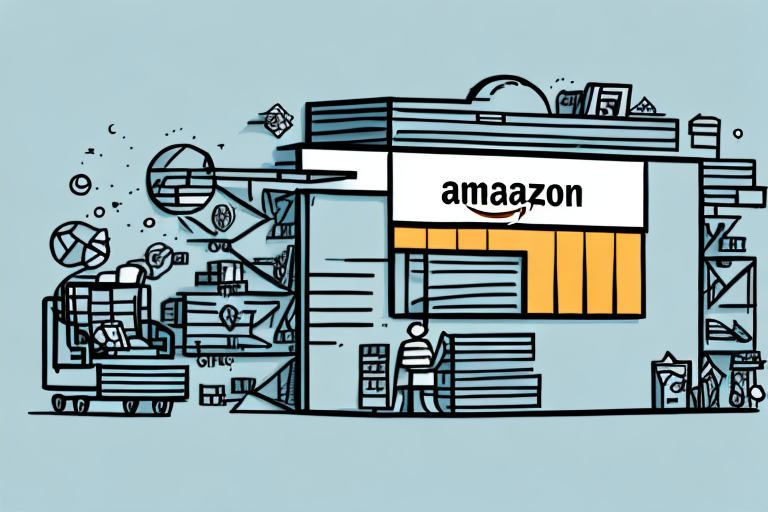The History and Evolution of Amazon
Amazon was founded in 1994 by Jeff Bezos in his garage in Seattle. Originally an online bookstore, it quickly diversified into other products such as electronics and clothing. Amazon's growth was meteoric, and by the end of the decade, it had become one of the most successful e-commerce companies in the world. In the early 2000s, Amazon launched its renowned Amazon Prime service, offering free and fast shipping to members along with other benefits. Today, Amazon has expanded into various industries, including healthcare, entertainment, and smart home devices.
Technological Advancements
In addition to its expansion into new industries, Amazon has made significant strides in technology. In 2006, it launched Amazon Web Services (AWS), a cloud computing platform that has become a major player in the industry. AWS provides a range of services, including storage, computing power, and database management, to businesses and individuals worldwide. In recent years, Amazon has also invested heavily in artificial intelligence and machine learning, with products such as Alexa and Amazon Rekognition.
Addressing Criticisms
Despite its success, Amazon has faced criticism for its impact on small businesses and its treatment of workers. Some have accused the company of engaging in anti-competitive practices, while others have raised concerns about working conditions in its warehouses. In response, Amazon has implemented new policies and initiatives, such as a $15 minimum wage for all employees and programs to support small businesses selling on its platform.
The Rise of Online Shopping and Its Impact on Traditional Retail
The rise of online shopping has profoundly impacted traditional brick-and-mortar retail stores. As consumers increasingly prefer the convenience of shopping from home, physical retail stores have had to adapt or risk closure. This shift has led to the closure of many stores, job losses, and a weakening of local economies. However, online shopping has also created new opportunities for businesses, particularly those that leverage Amazon's platform.
Changes in Consumer Behavior
Online shopping has shifted consumer behavior, with more people relying on online reviews and recommendations before making purchases. This trend pressures businesses to maintain a positive online presence and reputation. Additionally, the demand for fast and reliable shipping has surged, with companies like Amazon offering same-day or next-day delivery options. Traditional retail stores have had to invest in their own online presence and delivery services to compete effectively.
Amazon's Dominance in the E-commerce Industry
Amazon's dominance in the e-commerce industry is undeniable. In the United States, Amazon accounts for over 50% of online sales, making it challenging for other e-commerce companies to compete. Many competitors have been forced to shut down or merge with other companies. Moreover, Amazon's vast network of warehouses and delivery centers, along with its sophisticated logistics and supply chain systems, enables it to offer unparalleled speed and efficiency to its customers.
How Amazon's Business Model Works
At its core, Amazon's business model revolves around customer obsession. The company's mission is to be the Earth's most customer-centric company, achieved by offering a wide range of products at competitive prices and providing excellent customer service. Amazon earns revenue by taking a commission on products sold through its platform and through various other means, such as advertising and subscription services.
Expansion into Cloud Computing and AI
Beyond its core business, Amazon has expanded into areas like cloud computing and artificial intelligence. Amazon Web Services (AWS) provides businesses with services including storage, computing power, and database management, becoming a significant revenue stream. Additionally, Amazon has developed its own hardware products, such as the Kindle e-reader and the Echo smart speaker, further solidifying its position in the tech industry.
The Impact of Amazon on Small Businesses
While Amazon has benefited some small businesses, it has negatively impacted others. Small businesses unable to compete with Amazon's low prices and fast shipping have struggled or gone out of business, leading to criticism of Amazon's business practices and calls for greater antitrust regulation. However, some small businesses have thrived by partnering with Amazon and selling their products through its platform.
Opportunities for Small Businesses
Amazon provides small businesses access to a wider customer base, enabling them to reach customers they might not have otherwise. This is particularly beneficial for small businesses in rural areas or those with limited resources for marketing and advertising. Additionally, Amazon's fulfillment services allow small businesses to focus on product development and customer service rather than logistics and shipping.
Disruptive Technologies and Innovations Brought about by Amazon
Amazon's relentless focus on innovation has led to the development of many disruptive technologies and innovations. For example, Amazon has pioneered the use of drones for delivery, developed sophisticated AI and machine learning algorithms, and introduced voice-activated assistants like Alexa. These technologies have the potential to revolutionize various industries and enhance consumer convenience.
Commitment to Renewable Energy
Amazon has also made significant progress in renewable energy. The company has committed to powering its operations with 100% renewable energy by 2025 and has installed solar panels on many of its fulfillment centers. Amazon has invested in wind and solar farms globally, furthering its commitment to sustainability.
How Amazon is Changing Consumer Behavior
Amazon's business model and services have transformed how people shop and consume goods. Consumers now expect fast and free shipping, easy returns, and the convenience of online shopping. This shift has reduced reliance on physical retail stores and increased demand for e-commerce. Additionally, Amazon's algorithms and personalized recommendations have fostered a culture of instant gratification and impulse buying.
The Effects of Amazon on Pricing Strategies and Competition
Amazon's dominance has influenced pricing strategies and competition within the e-commerce sector. The company's ability to offer low prices and fast shipping pressures other e-commerce businesses to adopt similar strategies, often leading to a race to the bottom in pricing. Amazon's market power also allows it to negotiate lower prices with suppliers, making it difficult for smaller competitors to compete effectively.
Strategies for Businesses to Compete with Amazon
Businesses aiming to compete with Amazon have several strategies at their disposal:
- Differentiation: Offer unique products or services that set the business apart from Amazon.
- Superior Customer Service: Provide exceptional customer experiences to build loyalty.
- Niche Focus: Concentrate on a specific market segment or product category.
- Partnering with Amazon: Utilize Amazon's platform to reach a vast customer base.
- Investing in Data Analytics: Use data to optimize pricing, product offerings, and marketing campaigns.
- Building Brand Awareness: Develop a strong and recognizable brand.
- Loyalty Programs: Offer compelling loyalty programs to retain customers.
The Role of Data Analytics in Understanding the Amazon Effect
Data analytics is crucial in understanding the Amazon Effect. By analyzing consumer behavior data, companies can gain insights into how Amazon's business model impacts their industry and identify opportunities to compete. Data analytics also aids businesses in optimizing pricing strategies, product offerings, and marketing campaigns, ensuring they remain competitive in the evolving market landscape.
The Future of E-commerce in the Age of Amazon Dominance
As Amazon's dominance continues to grow, the future of e-commerce appears increasingly dominated by the company. However, opportunities still exist for businesses that can carve out a niche or offer unique products and services. Technological advancements, such as blockchain and artificial intelligence, may disrupt the e-commerce industry further, creating new avenues for innovation and competition.
Lessons Learned from Businesses that Have Successfully Adapted to the Amazon Effect
Many businesses have successfully adapted to the Amazon Effect and thrived despite the company's dominance. Key lessons include:
- Customer-Centricity: Prioritizing customer satisfaction and experience.
- Constant Innovation: Continuously evolving products and services to meet market demands.
- Partnerships and Collaboration: Building alliances to enhance capabilities and reach.
- Leveraging Data Analytics: Using data to drive decision-making and strategy.
- Strong Brand Awareness: Developing a recognizable and trusted brand.
Understanding the Social, Economic, and Environmental Effects of the Amazon Effect
The Amazon Effect has broad social, economic, and environmental implications:
- Social: Creation of millions of jobs and enhanced consumer access to a wide range of products.
- Economic: Competitive pricing benefits consumers but challenges small businesses and can lead to job displacement.
- Environmental: Rapid delivery and increased consumption have environmental impacts, though Amazon's investments in renewable energy aim to mitigate some of these effects.
Conclusion: Preparing for a Future Shaped by the Amazon Effect
The Amazon Effect presents both challenges and opportunities for businesses. Companies that can adapt and innovate are more likely to thrive in an era of Amazon dominance. Policymakers and regulators also play a crucial role in preserving competition and minimizing the negative consequences of Amazon's market power. Ultimately, the future of e-commerce will be shaped by Amazon's ongoing evolution and the technological innovations it pioneers.




















